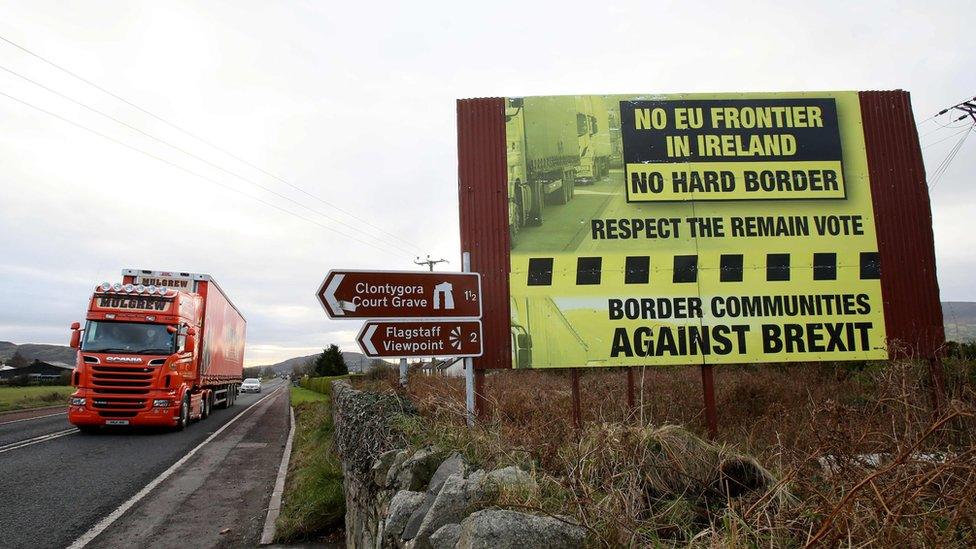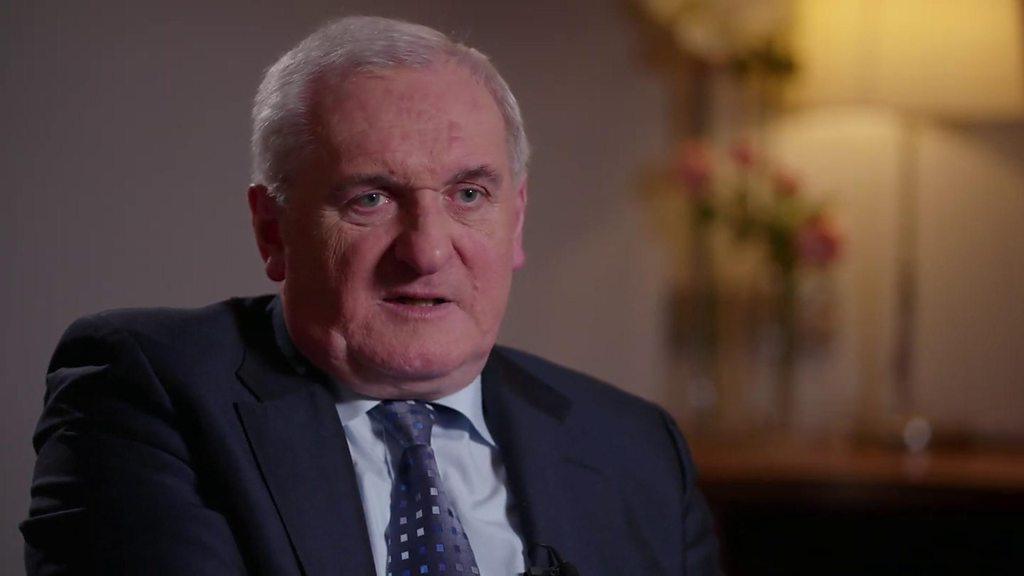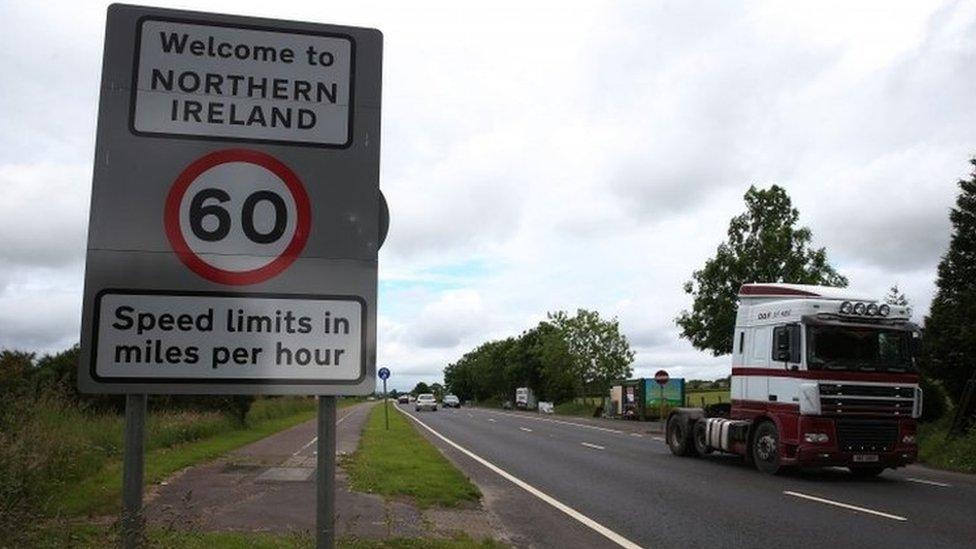Public 'would pull down Irish border' - Ahern
- Published
People would "pull down" a physical Irish border, says Bertie Ahern
There will be no physical Irish border after Brexit because people would "pull it down", the ex-taoiseach (Irish prime minister) Bertie Ahern has said.
He said it would not be terrorism but "ordinary people" who would resist any attempt to reintroduce border barriers.
Mr Ahern, who was one of the architects of the 1998 Good Friday Agreement, was speaking to the BBC's Newsnight to mark the 20th anniversary of the peace deal.
He added Brexit was a "disaster" and Ireland must play "hard ball" in talks.
However, the former taoiseach said difficulties over the Irish border could be alleviated if the UK strikes a Brexit trade deal that is closely aligned to the rules of the customs union.
The UK is due to leave the customs union and the single market when it leaves the European Union, but that has presented a dilemma over the future operation of the Northern Ireland border - its only land border with an EU member state.
The Good Friday Agreement led to the dismantling of security force checkpoints in border areas, and many commentators have expressed concerns about potential damage to the peace process if physical barriers were to be reintroduced.
Mr Ahern told Newsnight: "There never will be a border.
"There is not going to be a physical border across Ireland because if you tried to put it there you wouldn't have to wait for terrorism to take it down, people would just physically pull it down - the ordinary people."
'Border poll'
The current British and Irish governments and the EU, have all agreed that they do not want a hard border, but have not yet agreed on how it will be avoided.

Many commentators have expressed concern over the impact of a hard border
Mr Ahern suggested that a trade deal which is "fairly close" to the existing customs union arrangements would benefit the UK economy as well as Ireland.
Newsnight asked him if the Irish government should take a hard line in the negotiations and work with the EU to persuade the UK to agree to close alignment or face a hard Brexit.
Mr Ahern replied: "I'm afraid the answer to that is we have to play hard ball."
Reflecting on the legacy of the Good Friday Agreement and the current political problems at Stormont, the former taoiseach said now was not the right time to call a referendum on a united Ireland.
"To have a border poll - and even though I was the one who put it into the Good Friday Agreement - to have it in circumstances where there is not sustainability and there is not workability of the whole institution would be the wrong time to do it," Mr Ahern said.
"The only time a border poll is worth having, when a sizeable number, whatever it is, it will never be huge, but a sizeable number of unionists and loyalists believe that they can join and share with republicans and nationalists in a new Ireland."
- Published10 April 2018

- Published10 April 2018
